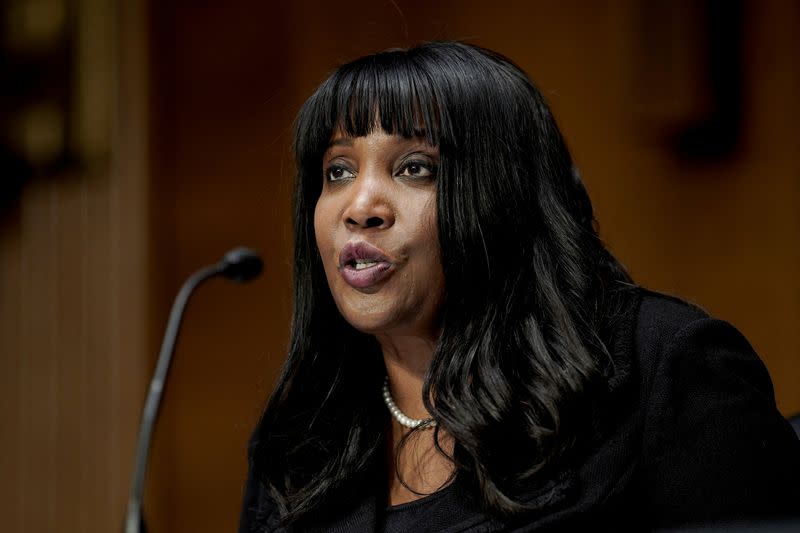Fed's Cook says geopolitical tensions could change US economic outlook

By Padraic Halpin and Conor Humphries
DUBLIN (Reuters) -A rise in geopolitical tensions across the world could aggravate already subdued growth in Europe and China and the spillover may alter the path of the U.S. economy, Federal Reserve Governor Lisa Cook said on Wednesday.
"Clearly what happens to the rest of the world affects the U.S. and right now economic growth is pretty subdued among our major trading partners," Cook said during a panel discussion at a conference hosted by the Central Bank of Ireland in Dublin.
"We are not only watching subdued growth, we're watching the geopolitical tensions that we're all talking about, and that could change the outlook both in the United States and the global economy."
Cook added that geopolitical tensions may in particular destabilize commodity markets and access to credit in the current higher interest rate environment.
"Any shock could make the situation worse that we're already (in)... and could be destabilizing to commodity markets, could be destabilizing to the system of credit," Cook said. "We are watching and waiting. We're being vigilant."
Cook's comments followed a speech in which she outlined in more detail a number of international risks, including conflict in Ukraine and the Middle East, as well as persistent inflationary pressures abroad and a further economic slowdown in China, that she said could threaten global financial stability.
She did not detail her view of the U.S. economic outlook or comment on the Fed's policy interest rate, nor did she give a sense of how likely she felt any of those potential risks were to becoming reality.
Much of her speech was a repeat of one on Monday, in which she described a largely resilient financial sector that is in better shape than it was in the mid-2000s, though subject to some risks including from non-bank financial institutions and from a decline in commercial real estate values, and a largely strong household sector, though with some stresses building among those with lower credit scores.
But in an added section Cook newly delineated several risks from abroad, including the potential for unexpected policy rate increases if inflationary pressures persist, international spillovers should China's economic slowdown worsen, and the potential for rising tensions in Russia, the Middle East and China to generate risks to global markets.
"More broadly, escalation of geopolitical tensions could lead to lower economic activity and increased fragmentation of global trade flows and financial intermediation, raising financing and production costs and contributing to more sustained supply chain challenges and inflationary pressures," Cook said.
(Reporting by Padraic Halpin and Conor Humphries in Dublin, Ann Saphir in San Francisco; writing by Lindsay Dunsmuir; Editing by Leslie Adler and Mark Potter)

 Yahoo Finance
Yahoo Finance 